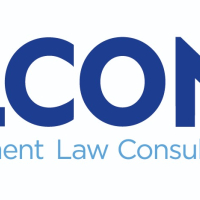Burnout - What is it, how to recognise it, and, more importantly, how to avoid it.
Covid restrictions and the need to work from home has increased feelings of exhaustion with many workers complaining of longer hours and citing the pandemic as a contributing cause of burnout. But what exactly is burnout and more importantly, especially as the evenings being to draw in, how can you avoid it:
BURNOUT
Whilst the term burnout has been around since the 1970’s, it took until last year for the World Health Organisation to formally recognise it as a legitimate medical diagnosis, defining it as “chronic workplace stress that has not been successfully managed”. Burnout is a state of emotional, physical and mental exhaustion caused, not by a single one-off stressful event but by being exposed to excessive and prolonged work place stresses.
WHAT CAUSES IT
The exact cause of burnout will be unique to you but it generally occurs when you constantly feel overwhelmed, emotionally drained, and unable to meet excessive work demands.link
It can result from one or a number of different factors, which can include: lack of control, an inability to influence decisions that affect your job, a toxic workplace, manager and or an unrealistic workload. Working alone, a lack of support and feelings of isolation caused by the current state of lockdown can also be a contributing factor.
HOW TO RECOGNISE IT
Feelings of disillusionment and procrastination can be early indicators of whats to come. With The International Classification of Diseases 11th Revision (ICD 11) identifying three specific signs of workplace burnout:
- feelings of energy depletion or exhaustion
- increased mental distance from one's job, or feelings of negativism or cynicism related to one's job
- reduced professional efficacy
Physical warning signs can manifest as anxiety, brain fog and dizziness or digestive issues, problems sleeping or a weakened immune system. It looks a bit like depression but it is entirely work related and unlike depression, can be overcome.
THE SCIENCE BEHIND IT
Your body responds to stress by releasing the hormone cortisol as part of the fight or flight response as well as glucose into your bloodstream in order to provide the additional energy required to respond to the perceived stressor. Once the perceived stressful event is over, your cortisol and glucose levels should return to normal.
The release of cortisol is beneficial, for a one off stressful event. However, during a pro longed and constant period of stress, your body struggles to generate enough cortisol, resulting in what is known as adrenal fatigue and not enough glucose to match it, which explains the feeling of being faint or dizzy as your blood sugar is low.
Difficulties solving problems and decision making can occur as burnout causes your prefrontal cortex to grow thinner. A part of your brain known as the executive function with responsibility for your memory and attention span.
That overwhelming feeling of unease and your desire to jack it all in and resign from your job with immediate effect, is caused by the enlargement of your amygdala. The part of your brain responsible for emotions and behaviour.
HOW TO AVOID IT
Early intervention and being able to recognise the signs and symptoms is a good starting point. And having a strong self-care routine is vital. Focus on getting the basics right; sleep, nutrition, exercise and create a clutter free home and workspace.
Differentiate what you have control over and leave behind the things you don’t. Refer to Stephen Covey’s book ‘7 Habits of Highly Effective People’ and his Circle of Influence and Control exercise to help you with this.
Set healthy boundaries and clarify or seek clarity on expectations and responsibilities. It can sometimes be hard to say ‘No’. Instead explain that if you say yes to X, Y needs to fall off the to do list, have its deadline extended or explain that you need additional support in order to complete the task.
Lean on your support network. At a time when connection is needed most, burnout can cause you to want to disconnect from others. So find the time to be with friends and family.
Flag the issue with your superior or trusted colleague, identify what support you need, and don’t be afraid to ask for it.
CONCLUSION
Burnout effects you on all levels, physical, emotional and cognitive and won’t go away on its own. If its too late for preventive measures, rest, and, if you can, book some time away from work or at least set boundaries around the hours you work, incorporating downtime each day. Then, take the first step to recovery and seek the help you need.
Executive Career Coach
Helping mid-career professionals and creatives rejuvenate their career.
Labour’s new Employment Rights Bill: challenges employers...
More Articles
The Value of a Sustainability Strategy in the Tender Process
Unlocking the Power of Raw Financial Data
Would you like to promote an article ?
Post articles and opinions on Professionals UK
to attract new clients and referrals. Feature in newsletters.
Join for free today and upload your articles for new contacts to read and enquire further.







